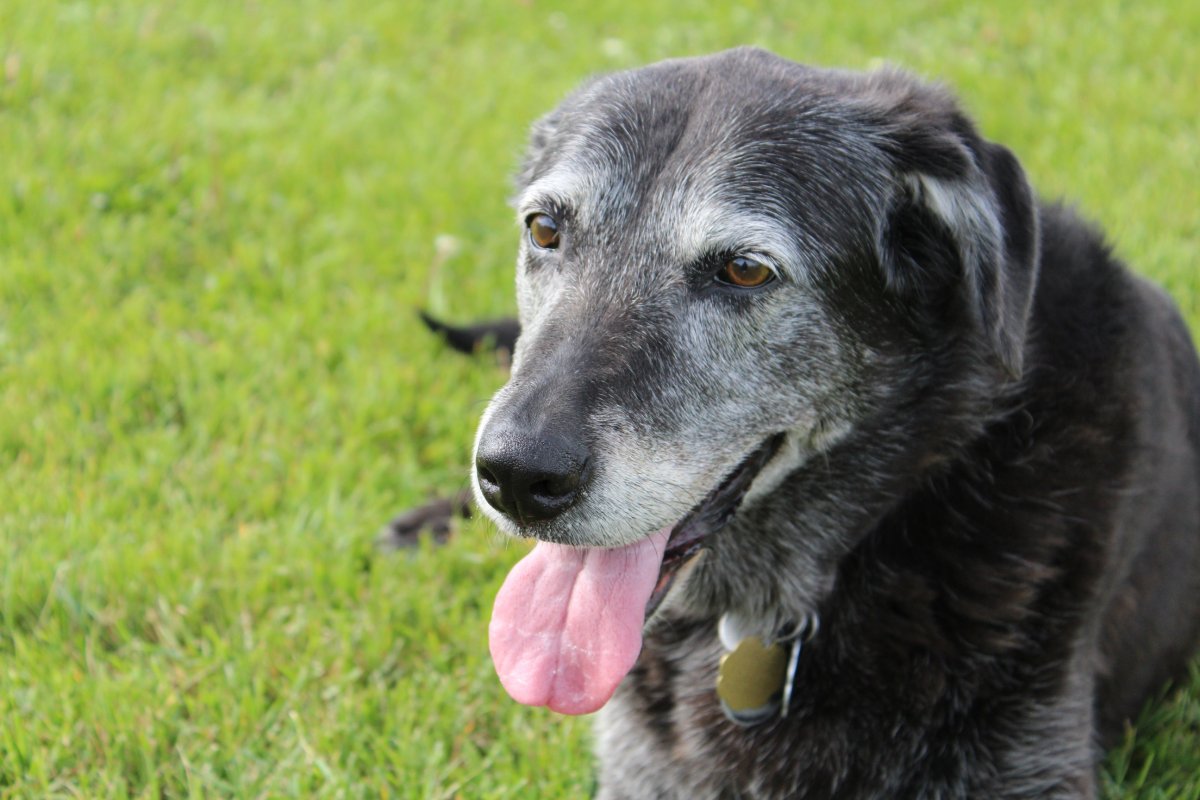As your dog gets older, it will naturally start to slow down, but some symptoms attributed to the natural aging process could be a sign of a serious health issue, says a survey.
Dog owners regularly interpret significant changes in elderly dogs as "just old age", rather than treatable health conditions, according to a new paper in the journal Frontiers in Veterinary Science. This may potentially delay veterinary visits that could help treat your pet.
Between 85 and 100 percent of the veterinary professionals surveyed in the paper said it was "moderately to extremely important" that owners of older dogs seek medical aid for the 15 most common clinical signs, including problems with climbing stairs or jumping, digestive issues, loss of hearing and sight, neurological issues, and skin conditions.
"But owners regularly attributed clinical signs in senior and geriatric dogs to normal aging, and thus may not mention them to their veterinary professional," researchers wrote.

The survey of 600 dog owners and 300 veterinary professionals across the U.K., asked the owners if they had noticed any of a list of 48 symptoms in their older dogs. They also asked them how urgently they would take their dogs to the vet after they had spotted these clinical signs.
"The senior life stage has been defined as the last 25 percent of a dog's estimated lifespan through to the end of life. Previous research has determined that most owners begin to view their dogs as senior (or old) from the age of 6 years onwards, which likely corresponds to the beginnings of cognitive, sensory and physical decline," the researchers wrote.
And 57 percent of owners noticed their older dogs slowing down on walks, while 53 percent spotted increased dental tartar and 50 percent were aware of their dog becoming stiff as it got to its feet.
The researchers also found fewer than 70 percent of owners would go to a vet after noticing these three most commonly noticed issues. According to the paper, 78 percent of owners thought that slowing down on walks was a normal part of aging, and wouldn't take their dog to the vet for it.
"Some owners believed that a senior dog should only visit the vet if they got sick, and 16 percent of owners of dogs of all ages had not had any contact with their veterinary practice in the previous year," researchers wrote.
"Only 10 percent of dogs considered 'old' by their owners had attended a senior wellness clinic or examination, despite 14 percent of the surveyed veterinary professionals' practices offering them."
"In summary, we found that older dogs were more likely to suffer from health issues and require medication than younger dogs, but they were less likely to receive preventive care or to be enrolled on a healthcare plan or be insured, highlighting the need for new interventions targeting aging dogs."

Most owners thought that a "healthy" senior dog (aged seven and older) should visit the vet annually, but veterinary professionals typically recommended visits every six months.
"Perceptions of dog owners and veterinary professionals can influence the preventive healthcare and treatment provided to dogs, especially at the senior life-stage, when chronic diseases become more common," Carri Westgarth, a professor in human-animal interaction at the University of Liverpool, said.
"The differences in opinion highlighted by our survey suggest that new educational initiatives and more effective communication are required."
This study's results have inspired a new tool designed to improve communication between pet owners and veterinary professionals, which is a checklist to identify commonly overlooked clinical signs before a veterinary appointment.
The British Small Animal Veterinary Association (BSAVA) PetSavers Ageing Canine Toolkit (ACT) leaflet and poster are now being used in general veterinary practices, with ongoing feedback collection to evaluate the toolkit's effect on owners, veterinary professionals, and older dogs.
"Screening tools and toolkits have the potential to increase owner understanding and engagement with veterinary care, and through repeated application over time and implementation of necessary interventions, improve patient welfare and health span," Sarah Williams from BSAVA PetSavers said.
Do you have a tip on a science story that Newsweek should be covering? Do you have a question about aging dogs? Let us know via science@newsweek.com.
Uncommon Knowledge
Newsweek is committed to challenging conventional wisdom and finding connections in the search for common ground.
Newsweek is committed to challenging conventional wisdom and finding connections in the search for common ground.
About the writer
Jess Thomson is a Newsweek Science Reporter based in London UK. Her focus is reporting on science, technology and healthcare. ... Read more
To read how Newsweek uses AI as a newsroom tool, Click here.








